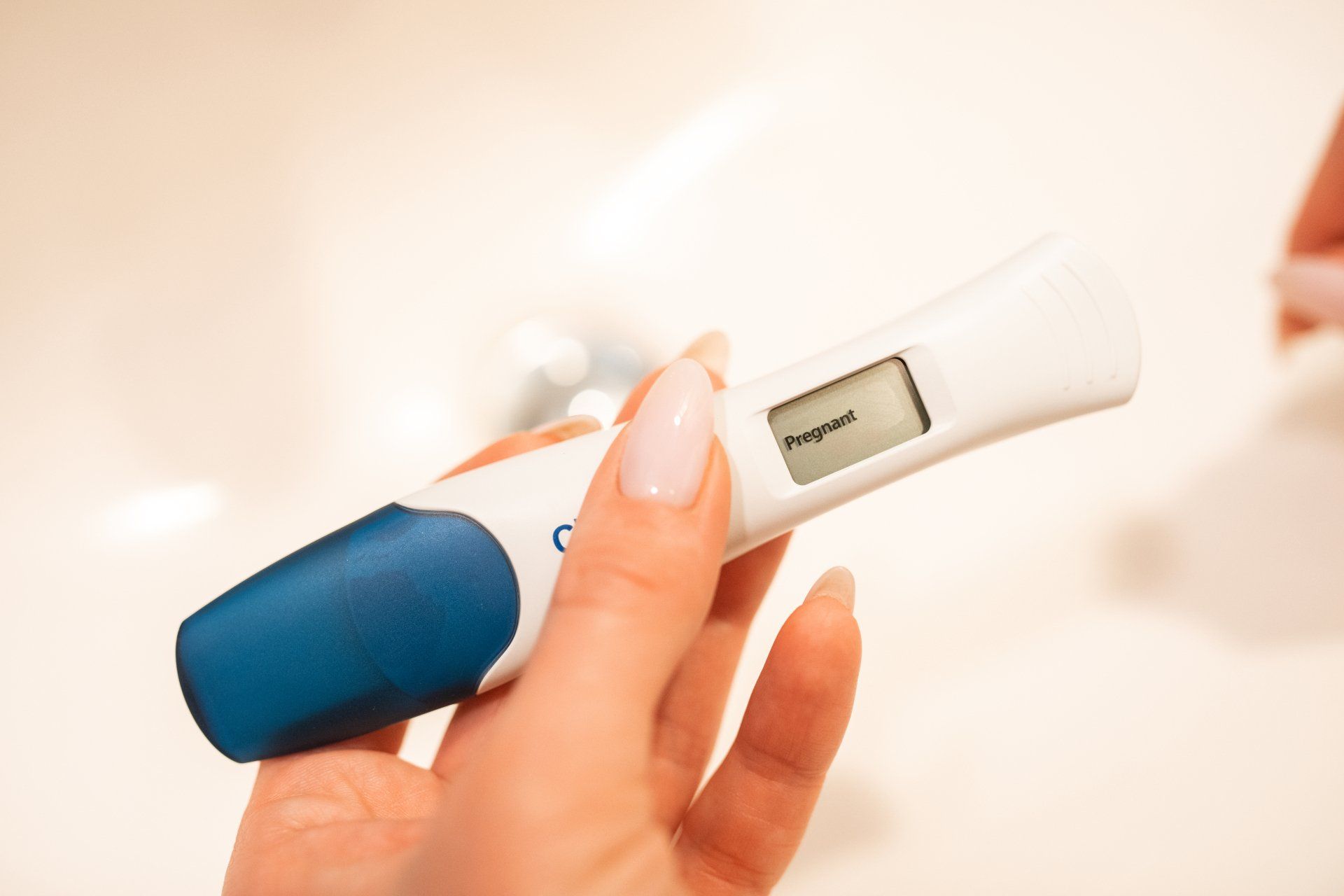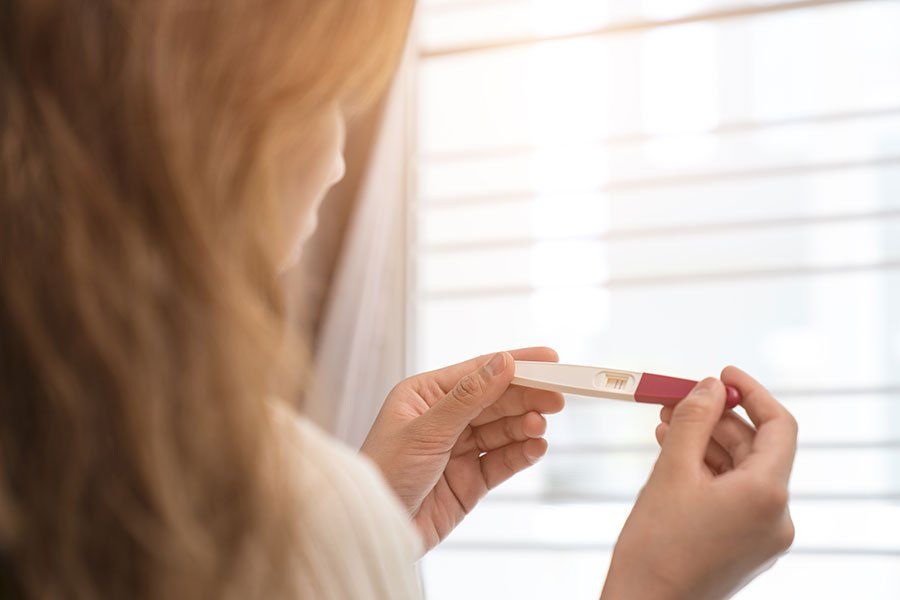How To Check Pregnancy At Home Accurately
Avail NYC exists to be a safe haven for women and men facing an unexpected pregnancy or seeking support after an abortion. We are not a medical provider.
When you think you might be unexpectedly pregnant, you want an answer that’s quick and accurate. Taking a home pregnancy test is often the first step to getting the answers you need. There are so many home pregnancy tests to choose from, and most of them claim to be more than 99% accurate. How do you know which one is the best to buy? We’ll discuss how they work, what to consider when purchasing a test, and the pregnancy tests that are rated the most accurate.
If you think you may be unexpectedly pregnant,
Avail NYC offers confidential, self-administered laboratory-quality hCG pregnancy tests, which can provide results within three to five minutes.
How Home Pregnancy Tests Detect if You’re Pregnant
After conception, the fertilized egg implants into the uterine lining. This process is called
implantation and signals your body to start producing pregnancy hormones, including human chorionic gonadotropin (hCG). The
level of hCG doubles every 48-72 hours after implantation. Home pregnancy tests detect if hCG is present in your urine to determine if you’re pregnant or not.
What to Consider When Buying a Home Pregnancy Test
When you go to the store, you are probably wondering which is the best home pregnancy test out of all the options. There are several things you should consider.
The most sensitive pregnancy tests for picking up lower levels of hCG are blood tests from your doctor or
early home pregnancy tests. They can detect a pregnancy as early as six days after you ovulate. It takes about that much time for a fertilized egg to travel through the fallopian tube into the uterus, implant, and start producing enough hCG for a test to identify it in your urine. Depending on when you conceived, you can take a test five days before your expected period.
There are pros and cons to taking a pregnancy test before your missed period, such as:
Pros of early pregnancy testing:
- You may have a few more days to process the news and determine your next steps.
- You can start or stop taking medications or supplements like prenatal vitamins, with your doctor’s approval.
- You can make lifestyle changes earlier if needed.
Cons of early pregnancy testing:
- You can miss a positive result. In a laboratory setting, 76% of pregnant women will get a positive result when they test five days before their period is expected.
- It’s more expensive because you often have to test several times before you get a positive result.
- You can get a false-positive result if the test detects a
chemical pregnancy, which is an early miscarriage where the pregnancy ends naturally after implantation.
Have you ever tried to read a manual pregnancy test that appeared to have a faint line, and you weren’t sure if it was just an evaporation line or if it was a light positive result? It can be very confusing. If you want to avoid that, choose a test with a digital display window. A digital test typically costs more than a manual one, but it could be worth the peace of mind when the result clearly reads “pregnant” or “not pregnant,” or “yes” or “no.” Keep in mind that a digital test might be easier to read, but that doesn’t mean it’s necessarily more accurate than a stick or strip test.
How accurate is the pregnancy test?
Pregnancy tests come with test sticks or test strips. When you use test sticks, you will urinate directly onto the stick. If you purchase a pregnancy test with test strips, you’ll pee into a cup and hold the strip into the urine according to the package instructions.
To get the most accurate pregnancy test results, take the test after you have missed your period, make sure the test isn’t expired, and follow the directions carefully. But you may be wondering which brands are rated as the most accurate.
First Response™ Early Result Pregnancy Test
The First Response™ Early Result Pregnancy Test is chosen consistently as the most accurate and best overall home pregnancy test. Benefits include:
- You can test five days before your expected period (with a 76% accuracy rate).
- It has a curved handle, so it’s more mess-free.
- There is a manual or digital version.
- It can detect concentrations of hCG in urine as low as 6.5 mIU/ml (many tests do not detect levels below 25 mIU/ml).
Clearblue Digital Pregnancy Test Kit
Most pregnancy tests use lines or plus signs to indicate whether you are pregnant.
The Clearblue Digital Pregnancy Test Kit offers a digital display that says “Pregnant” or “Not Pregnant.” The test claims to be over 99% accurate as soon as the day your period is due. This test detects hCG in urine with a rate of 10 mIU/ml.
However, it is important to note that you do not have to buy the most expensive home pregnancy test in order to achieve accurate results. The longer you are pregnant, the more hCG is detectable in your urine. The First Response and Clearblue tests detect hCG at very low levels of concentration, but many drugstore tests work just as well.
Pregnancy Test Accuracy FAQ
-
When is the Best Time to Take a Home Pregnancy Test?
When you take a home pregnancy test, it’s best to do so first thing in the morning as this urine will have a more concentrated amount of the hormone hCG, providing more accurate results. Time your test according to the instructions on the box – not all makes and models use the same schedule. Most kits come with two tests, as well; take both to avoid a false initial reading.
-
How Do Pregnancy Tests Work?
Pregnancy tests are designed to detect a very specific hormone. This hormone, called human chorionic gonadotropin (hCG), is found in a woman’s urine or bloodstream directly after a fertilized egg fastens itself to the uterus wall.
-
Are All Home Pregnancy Testing Methods the Same?
With most at-home pregnancy tests, you place the end of a dipstick in your urine stream or dip test into a container of collected urine. Within a few minutes, the dipstick will reveal the test result — often as a plus or a minus sign, one line or two lines, or the words "pregnant" or "not pregnant". It’s important to follow the test instructions for how long to wait before checking results — usually two or more minutes. Most tests also have a control indicator — a line or symbol that appears in the result window. If the line or symbol doesn't appear, then the test isn't working properly and you will need to try again with another test.
Confidential Pregnancy Tests In Midtown Manhattan & East Harlem
If you think you may be unexpectedly pregnant,
Avail NYC offers free, self-administered laboratory-quality hCG pregnancy tests in Midtown Manhattan and East Harlem, which can detect pregnancy hormones ten days after conception and provide results within three to five minutes.
Avail NYC exists to be a safe haven for women and men facing an unexpected pregnancy or seeking support after an abortion. We are not a medical provider.
Other Articles

A safe place for confident decisions.
115 W. 45th St., 4th Floor
NY, NY 10036
Text us: 234-201-0532 or Call us: 212-689-1705
© Avail 2024






